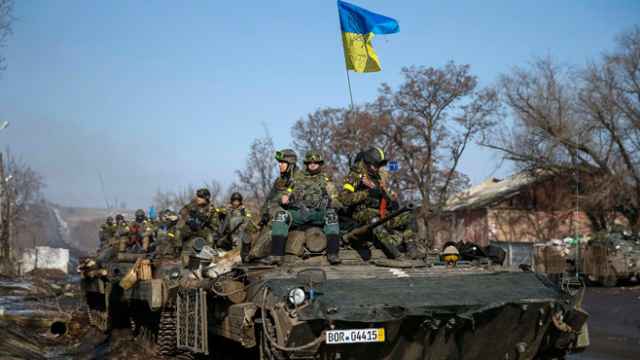Germany will overhaul its security strategy in coming years in response to Russian attempts to use "power politics and military force" to assert its interests, Defense Minister Ursula von der Leyen said on Tuesday.
Germany, which 70 years after World War II is seeking to assume a more assertive global role, has been at the center of efforts to find a diplomatic solution to the crisis in Ukraine and led a push within Europe to impose sanctions against Moscow.
"Russia's actions in Ukraine fundamentally change the security architecture in Europe," said von der Leyen as she opened a debate on a new security strategy to be outlined in a "white book" to be published next year.
It will detail the main principles underlying German policy for the years ahead.
Germany's new policy must take account of the Kremlin's attempt "to establish geo-strategic power politics and military force as a form of asserting their interests," said von der Leyen.
"The Kremlin's new policy began long before the crisis in Ukraine and will occupy us for a very very long time to come," she added.
The new strategy would mean the German army would in future focus not only on missions far afield, for example in Afghanistan, but also become more involved in strengthening NATO's defenses. Germany is already helping to boost NATO's presence in eastern Europe.
The new principles, which will supersede a white book from 2006, will also take account of other developments such as the rise of the militant Islamic State group, the Arab Spring, focus on climate change and cyber attacks, said von der Leyen.
In a further sign of how Germany is responding to the way President Vladimir Putin is steering Russia, Germany's foreign ministry is investing millions of euros in a new institute devoted to the study of post-Soviet states.
A Message from The Moscow Times:
Dear readers,
We are facing unprecedented challenges. Russia's Prosecutor General's Office has designated The Moscow Times as an "undesirable" organization, criminalizing our work and putting our staff at risk of prosecution. This follows our earlier unjust labeling as a "foreign agent."
These actions are direct attempts to silence independent journalism in Russia. The authorities claim our work "discredits the decisions of the Russian leadership." We see things differently: we strive to provide accurate, unbiased reporting on Russia.
We, the journalists of The Moscow Times, refuse to be silenced. But to continue our work, we need your help.
Your support, no matter how small, makes a world of difference. If you can, please support us monthly starting from just $2. It's quick to set up, and every contribution makes a significant impact.
By supporting The Moscow Times, you're defending open, independent journalism in the face of repression. Thank you for standing with us.
Remind me later.





